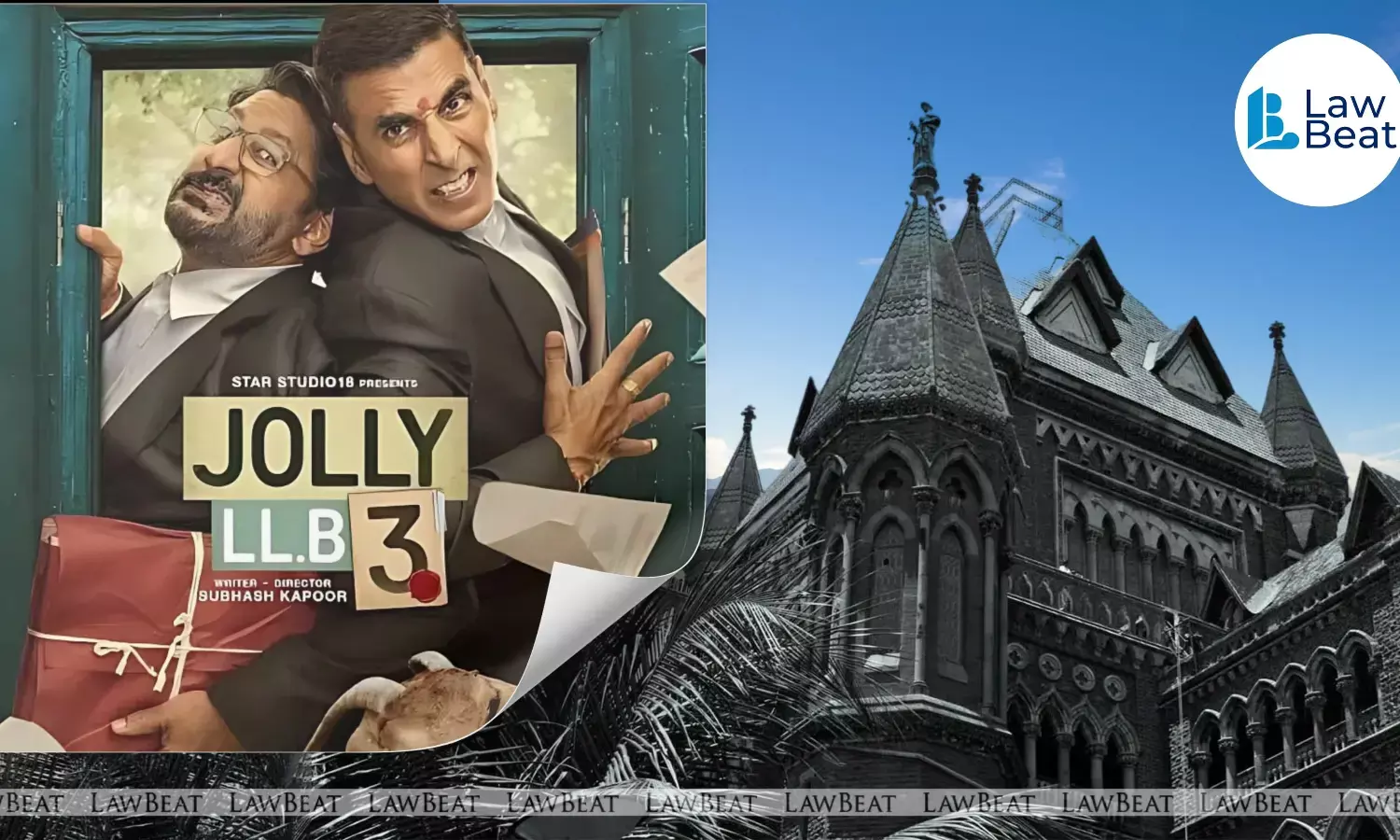Bombay HC Dismisses Plea Seeking Ban on Release of Jolly LLB 3 Over Alleged Mockery of Judiciary

Bombay High Court Refuses to Stall Release of Jolly LLB 3, Says Judiciary Not Hurt by Mockery
The Bombay High Court has dismissed a public interest litigation petition that sought directions to restrain the release of the upcoming film Jolly LLB 3 on the ground that it denigrates the judiciary. The petition, filed ahead of the film's scheduled release on September 19, 2025, alleged that the trailer and teaser of the movie contained derogatory references to judges and the judicial process and therefore warranted judicial intervention.
A division bench of Chief Justice Shree Chandrashekhar and Justice Gautam Ankhad refused to entertain the plea and categorically rejected the argument that cinematic portrayals could undermine the dignity of the courts.
The bench observed during the hearing, “We face the mocking right from day one of our judgeships. So don’t worry, we are not affected.”
With this remark, the court made it clear that mere satire or artistic expression in films does not amount to contempt or a threat to judicial authority.
The petitioner had argued that the teaser of the film, starring Akshay Kumar and Arshad Warsi, contains objectionable content in which members of the judiciary are allegedly referred to by colloquial terms such as “Mamus,” which, according to the petitioner, carries disrespectful undertones.
The plea claimed that such depictions mislead the public, particularly young audiences, and create an atmosphere of ridicule around the judicial institution.
It was submitted that the sanctity of the court system must be preserved and that filmmakers should be restrained from projecting judges or advocates in a disparaging light.
The bench, however, was not persuaded by these contentions. It stressed that judges and the institution of the judiciary are neither so fragile nor so thin-skinned as to be affected by satirical content in films.
According to the court, freedom of speech and expression allows filmmakers a certain degree of creative liberty, provided their work does not cross the line into direct contempt, incitement, or unlawful disparagement of constitutional institutions. In the absence of such a clear and direct threat, the court found no reason to interfere with the release of a feature film that had already undergone certification under the statutory regime.
The case is part of a wider set of litigations that have been filed across different states in connection with Jolly LLB 3. Similar petitions have surfaced in the Allahabad High Court, the Madhya Pradesh High Court, and the Gujarat High Court, challenging either the teaser, trailer, or the promotional song “Bhai Vakeel Hai.”
In Allahabad, the High Court dismissed a plea asserting that there was nothing objectionable in the promotional material that would scandalise the legal fraternity.
The Madhya Pradesh High Court, in contrast, has issued notices to the makers of the film, directing them to respond to concerns that the song demeans the legal profession by showing actors dancing in lawyers attire.
In Gujarat, another petition has sought a stay on the release, alleging that objectionable dialogues degrade the dignity of the judiciary, with the court being urged to appoint a review committee comprising sitting and retired judges and lawyers to examine the film.
The Bombay High Court's ruling, however, underscores a consistent judicial approach that recognises the difference between artistic expression and actionable contempt. The court effectively signalled that it will not extend judicial protection to claims that are rooted in subjective discomfort with satire or parody, especially when weighed against constitutional guarantees of free expression.
The bench noted that judges, as part of their professional life, are routinely subjected to criticism and even mockery, but such responses are part of the democratic discourse that courts do not shy away from. The decision also serves as a reminder of the certification framework established under the Cinematograph Act, 1952, which vests the Central Board of Film Certification with the authority to review and certify films for public exhibition.
Once the statutory board has granted clearance, courts generally refrain from substituting their own subjective assessments unless a clear case of violation of law is made out.
Case Title: Petition filed by Association for Aiding Justice
Bench: Chief Justice Shree Chandrashekhar and Justice Gautam Ankhad
Date of Order: September 17, 2025
